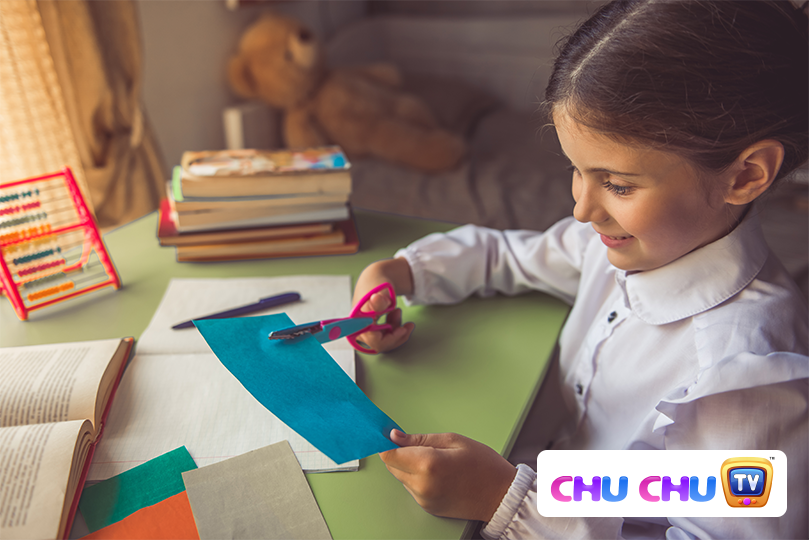The constant pulls and pressures of the modern times we live in is no longer limited to just adults. It has started to affect our children as well, who are increasingly facing a wide variety of emotional health issues. There is immense pressure to perform at school and to be socially successful, which is why many kids are finding it difficult to cope up. Research studies have revealed that cases of anxiety, depression and substance abuse among children have increased in recent times. The suicide rate among adolescents has also increased.
To cope up with the challenging times, it’s necessary that your child is emotionally healthy. One of the major benefits of being emotionally healthy is that your child will be able to effectively deal with disappointments that they may encounter. Setbacks are bound to occur as your child strives to achieve success. If they are emotionally healthy, they will be able to overcome their disappointments and try again with more conviction and confidence. Emotional health is also the key to developing a positive self-esteem, which is a prerequisite for academic and social success. When your kid is emotionally healthy, they will be willing to take risks and initiatives and work towards their goals with a firm belief.
As a parent, there are several things you can do to make your kid emotionally healthy. Here are some activities that will help keep your child emotionally healthy.
#1 Physical activities:
You can encourage your child to take part in physical activities. It could be cycling, swimming, sports, running, or anything else that requires physical effort. Such activities trigger the release of stress-busting chemicals such as endorphins, which are also referred to as the ‘happy’ chemicals. These chemicals promote a feeling of general wellbeing, which is crucial to achieving a healthy state of mind. Physical activities can significantly reduce the level of stress and anxiety experienced by an individual. They also boost energy levels and improve the quality of sleep. You can ask your child to choose an activity that they like. You can create some goals and rewards to keep them motivated.
#2 Games:
The human mind needs to continually learn and evolve to remain healthy. Games are a great way to learn new things and concepts. These can boost your child’s creativity and hone their problem-solving skills. Moreover, games can also be a platform for family members to bond together. There are a wide variety of board games, puzzles, strategy and other types of games that you can play with your kid. Some of the most preferred games include chess, scrabble, monopoly, memory games, etc. Your kid can also play certain games on video game consoles or on your PC. Just make sure they don’t exceed their acceptable screen time.
#3 Learn to take decisions:
Decision making is a complex process and it relates to the ability of an individual to process raw information and transform it into something useful. If you encourage your child to take decisions on their own, it will definitely boost their mental and emotional health. You can start with simulation exercises, for example, you can give them a hypothetical situation and ask them what they would do. Once your kid starts getting better with decision making, you can give them real-world scenarios to deal with. Make sure you appreciate your kid when they make a good decision and offer guidance whey they fail.
#4 Learn to act independently:
Being able to act independently requires a certain level of emotional maturity. This is something that you can teach your kid. When your kid has learnt to act independently, it would mean that they have acquired a healthy state of mind. You can start with small tasks such as asking them to wake up on their own or clean up their room. If they have a homework assignment, you can ask your child to first do it on their own and later show it to you. There are many other things in and around the home that you can ask your kid to do in an independent manner.
#5 Develop a hobby:
This will allow your kid to learn more about their area of interest and become an expert in a specific field. For example, if your kid has interest in numismatics, the study of coins and currency, they can gain in-depth knowledge in this specific field. Wherever expertise is involved, it naturally boosts confidence and self-esteem, which is essential for emotional health. There are various hobbies that your kid can develop based on their areas of interest. Some examples would include hobbies like gardening, origami, photography, cooking, crafts, writing, stamp collecting, painting, music, etc.
#6 Make new friends:
Research studies have shown that people who are socially active have a healthier state of mind. Being social also boosts confidence and self-esteem. If your kid is shy or introvert, you can encourage them to make new friends at the school or in the neighborhood. Psychologists say that even shy and introvert people want to make friends, but they are just not sure on how to do it. You can talk to your child to see what doubts or fears they have that may be limiting their social interactions. You can provide guidance accordingly or seek medical assistance if needed.
#7 Learn a new language:
Whenever the human mind tries to learn something new, it boosts brain activity and creates entirely new neural pathways. It also boosts emotional health, as the individual makes efforts while progressing towards their new goal. You can encourage your kid to learn a new language, as this activity would keep them engaged for several months. The thrills and challenges of learning a new language will keep them emotionally active. It could also be useful for them when they start their professional career as an adult.
These activities will certainly help, but it’s important to remember that there is no replacement for love, care, support and guidance. Just like physical injuries need medicine, your love will be the remedy for the emotional setbacks experienced by your child. Apart from love, you also need to encourage your child to freely share their thoughts, ideas and queries with you. This way, you will be able to clear any of their doubts or fears. It will remove negativities and clutter from your child’s mind and keep them emotionally healthy.

















Leave a Comment